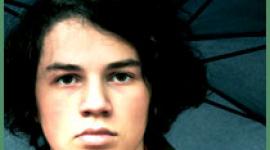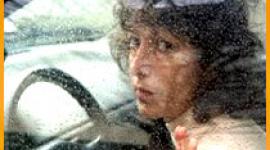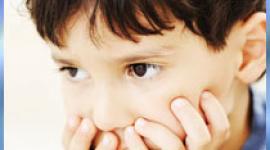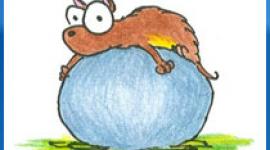Anxiety Treatments that Worked for Me
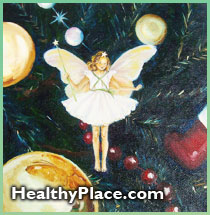
Before you go any further, I want to remind you, I am not a doctor and the information below is not medical advice. For diagnosis and treatment, please see a licensed doctor or therapist.
Books and Tapes
I highly recommend Healing Anxiety with Herbs by Dr. Harold Bloomfield, Hope And Help For Your Nerves and Peace From Nervous Suffering by Dr. Claire Weekes, and Taking Back The Power, an audio package by Bronwyn Fox.
Meditation and Relaxation Tapes
I try to meditate at least once a day. It helps control negative thoughts which provoke anxiety and is a very powerful and useful tool which you can incorporate in your every day routine to help eliminate negative thoughts. Meditation works on relaxing your mind. Once your mind relaxes, your body follows. Relaxation techniques work on relaxing the muscles in your body. Once you have learned these techniques you can apply them in any situation.
Emotional Freedom Technique
This technique is used by tapping on certain meridian points to help alleviate symptoms of anxiety. It works extremely well on phobias.
Herbs and Vitamins
Passion flower: Passion flower is a very effective herb for many nerve conditions. It sedates, soothes and relaxes, helps relieve muscular spasms, and tends to relieve pain. Passion flower assists in insomnia, with no associated side effects such as stupor, depression, and confusion; as often occurs with various drugs used to treat insomnia.
Nervous tensions, nervous agitation, anxiety, hysterical behaviour, hyper-activity in children, poor mental concentration, Parkinson's disease, epilepsy, neuralgia, shingles, high blood pressure, spasmodic asthma and nervous conditions associated with menstrual periods, child birth and menopause may all be relieved by this wonderful, safe, gentle nervine herb.
Passion flower is often available combined with valerian in nerve relaxer formulas, or in herbal formulas for insomnia in combination with valerian and other herbs and minerals.
Chamomile: For centuries Chamomile has been a highly respected herb. In the garden, it's thought of as the doctor plant because it helps to strengthen and revive weak herbs nearby. Chamomile's action and influence is rapid upon the circulation, stomach and uterus, and also relaxes nerves. It promotes normal monthly periods and relieves muscular pain and spasms, including colic.
It's soothing to babies, but is also beneficial as a general tonic, assisting the appetite, digestion, and relieving some cases of lumbago, neuralgia, insomnia and rheumatic problems.
As a strong tea, this herb is anti-inflammatory, antibiotic and anti-spasmodic, being useful for menstrual cramps and mild internal infection. The Germans state that the curative powers of Chamomile are immense and call it alles zutraut, which means capable of anything.
Bach's Rescue Remedy: Consists of five remedies which are combined together. It consists of STAR OF BETHLEHEM for shock. ROCK ROSE for great fear and panic. IMPATIENTS for mental and physical tension, when the sufferer cannot relax and the mind is agitated and irritable. CHERRY PLUM for loss of emotional control, when the sufferer screams, shouts or becomes hysterical; and CLEMATIS, the remedy for the bemused, distant feeling, which often precedes a faint.
Kava Kava: The botanical has been used in parts of the Pacific at traditional social gatherings as a relaxant and in cultural and religious ceremonies to achieve a higher level of consciousness. The roots can be made into a mildly narcotic beverage that's comparable to popular cocktails in our culture. In Germany, Kava Kava is used as a nonprescription drug to reduce anxiety. Kava was first mentioned in scientific records in 1886, and it is gaining popularity in the U.S. for its relaxing effects.
More recently, Kava Kava has also gained popularity with the natives of Hawaii, Australia and New Guinea where it is used medicinally, as well as recreationally. Kava also is effective as a pain reliever and can be used instead of aspirin, acetaminophen and ibuprofen.
Recent clinical studies have shown that the herb kava is a safe, nonaddictive, anti-anxiety medicine, and is as effective as prescription anxiety agents containing benzodiazepines such as valium. While benzodiazepines tend to promote lethargy and mental impairment, kava has been shown to improve concentration, memory, and reaction time for people suffering from anxiety. Kava has been clinically demonstrated as a means of achieving a state of relaxation without the adverse side effects.
B Complex: Nourishes nerve and brain tissue for healthy mental function. Provides dietary support for proper metabolic function of the body's immune system. Helps the body effectively manage fatigue and tension. Provides essential vitamins that support a healthy cardiovascular system.
B5: Pantothenic acid (vitamin B5)s' most important function is as an essential component in the production of coenzyme A, a vital catalyst that is required for the conversion of carbohydrates, fats, and protein into energy. Pantothenic acid (vitamin B5) is also referred to as an antistress vitamin due to its vital role in the formation of various adrenal hormones, steroids, and cortisone, as well as contributing to the production of important brain neuro-transmitters such as acetylcholine. In addition to helping to fight depression Pantothenic acid (vitamin B5) also supports the normal functioning of the gastrointestinal tract and is required for the production of cholesterol, bile, vitamin D, red blood cells, and antibodies.
Ginseng: A small perennial plant, the most potent species are found in Siberia and Korea, taking six years to mature. Gingseng is a general tonic especially valuable for feverish and inflammatory disease. It is reputed to promote the hormone-producing glands, preventing tiredness and the debilitating effects of old age, often to maintain sexual potency and as an aphrodisiac. It is recommended for hemorrhage and blood diseases, and women can take ginseng for everything from normalizing menstruation to easing childbirth.
Ginseng is apparently taken by Russian astronauts for resistance to disease and stress, in strengthening the immune system. It is also used in the treatment of anaemia, atherosclerosis, depression, diabetes, oedema, hypertension and ulcers. Alleviates coughs, chest problems and fever at the same time. It can promote both mental and physical vigour and good digestion.
The Chinese have held ginseng root in almost religious esteem as a panacea for many ailments, for thousands of years.
Gingko: Probably the world's oldest living tree species having survived over 200 million years, Ginkgo Biloba is extremely resistant to pollution and disease. The active ingredients, flavoglycosides play an important role in promoting better circulation. Clinical trials in the trials in the aged have shown improvement in short term memory, headache, vertigo, ringing in the ears, lack of energy and depression. Relieves chillblains and pains in legs after exercise. Increases alertness and general feeling of well being. Furthermore, Ginkgo Biloba has an antioxidant effect and protects against stroke by its anti-aggregatory effect on blood platelets. Can be used as an inhalation for sinus congestion, coughs, colds and asthma.
St John's Wort: One of the best herbs for mood elevation is St. John's wort. Several controlled studies have shown positive results in treating patients with mild to moderate depression. Improvement was shown with symptoms of sadness, helplessness, hopelessness, anxiety, headache and exhaustion with no reported side effects.
Its action is based on the ability of the active ingredient, hypericin to inhibit the breakdown of neurotransmitters in the brain. The herb also inhibits monoamine oxidase (MAO) and works as a serotonin reuptake inhibitor (SRI); both are actions similar to drugs prescribed for depression. In Germany, nearly half of depression, anxiety, and sleep disorders are treated with hypericin. St. John's wort should not be taken with any other antidepressants, it is not effective for severe depression, and no one should stop taking any prescribed medications for depression without proper medical care.
St. John's wort has been administered in the treatment of many illnesses. The most well known action of St. John's wort is in repairing nerve damage and reducing pain and inflammation. The herb has been used to relieve menstrual cramping, sciatica, and arthritis. It has a favorable action on the secretion of bile and thus soothes the digestive system.
The active constituents in the herb (there are over 50) include hypericin and pseudohypericin, flavonoids, tannins and procyanidins. The tannins are responsible for the astringent effect for wound healing. Hypericin increases capillary blood flow and is a MAO inhibitor.
There are many studies documenting the clinical effects of hypericum as an antidepressant treatment similar to several synthetic antidepressants, but with a minimum of side effects. Hypericin has been demonstrated to increase theta waves in the brain. Theta waves normally occur during sleep and have been associated with deep meditation, serene pleasure and heightened creative activity. St. John's wort effectually may improve perception and clarify thinking processes.
Common Use: St. John's wort has been used traditionally as an herbal treatment for anxiety and depression. It is an effective astringent that promotes wound healing and has antiviral properties that can counter herpes simplex, flu viruses and is being investigated as a treatment for acquired immunodeficiency syndrome (AIDS).
Note: If you are pregnant or lactating or taking anti-depressants like Prozac, check with your physician before taking St. John's wort.
Kali phos 6x: A nerve tonic. Useful for rundown nervous system due to worry or excitement.
Mag phos 6x: Beneficial for relief of muscular cramps and spasms, flatulence, colic and occasional minor pains.
This is a complete list of the herbs and vitamins that I use and have found beneficial in their calming and soothing properties and to help my body maintain a healthy balance.
Warning: Please get advice from your Doctor before using any vitamins or herbs or any anxiety treatment as some may not be suitable for you and others can be very harmful when mixed with medications.
next: Breathing Techniques to Calm Anxiety and Panic
~ all articles on anxiety self-help
~ anxiety-panic library articles
~ all anxiety disorders articles
APA Reference
Staff, H.
(2007, February 20). Anxiety Treatments that Worked for Me, HealthyPlace. Retrieved
on 2024, April 19 from https://www.healthyplace.com/anxiety-panic/articles/anxiety-treatments-that-worked-for-me
